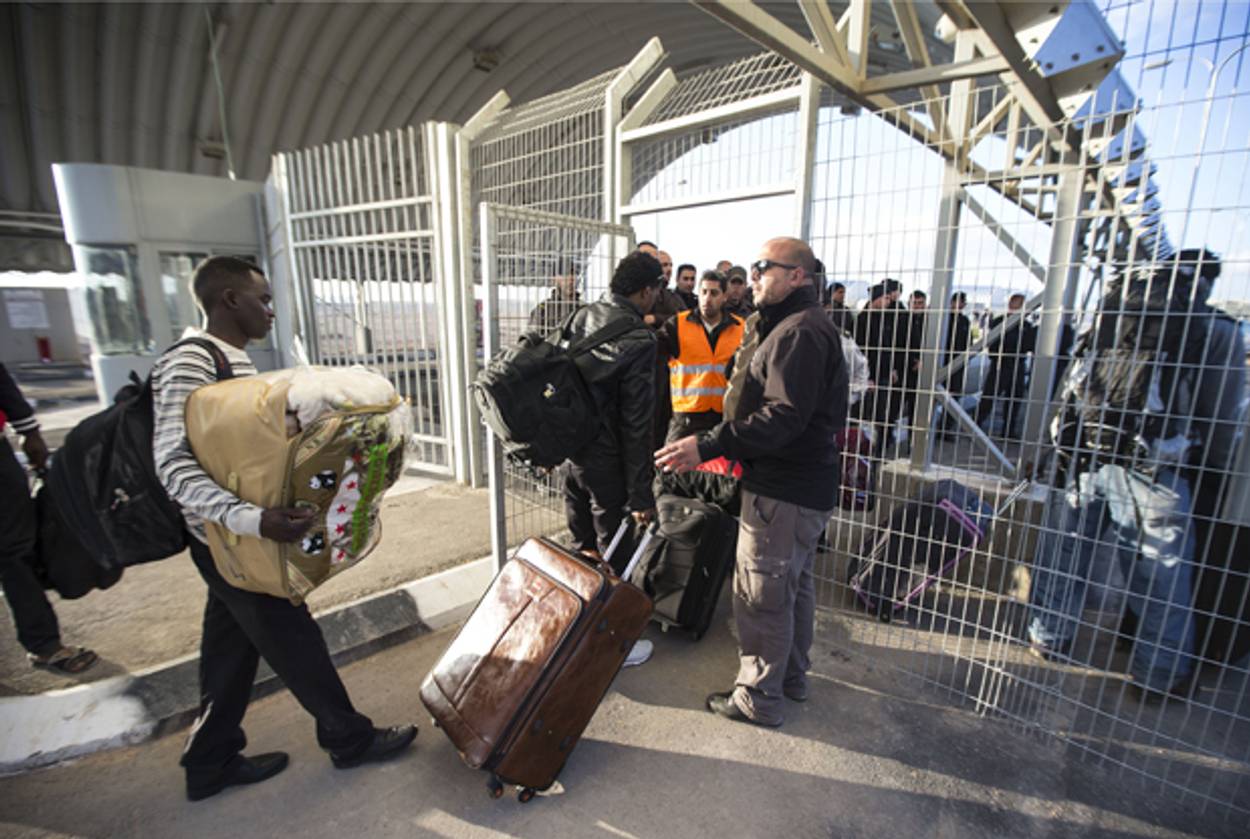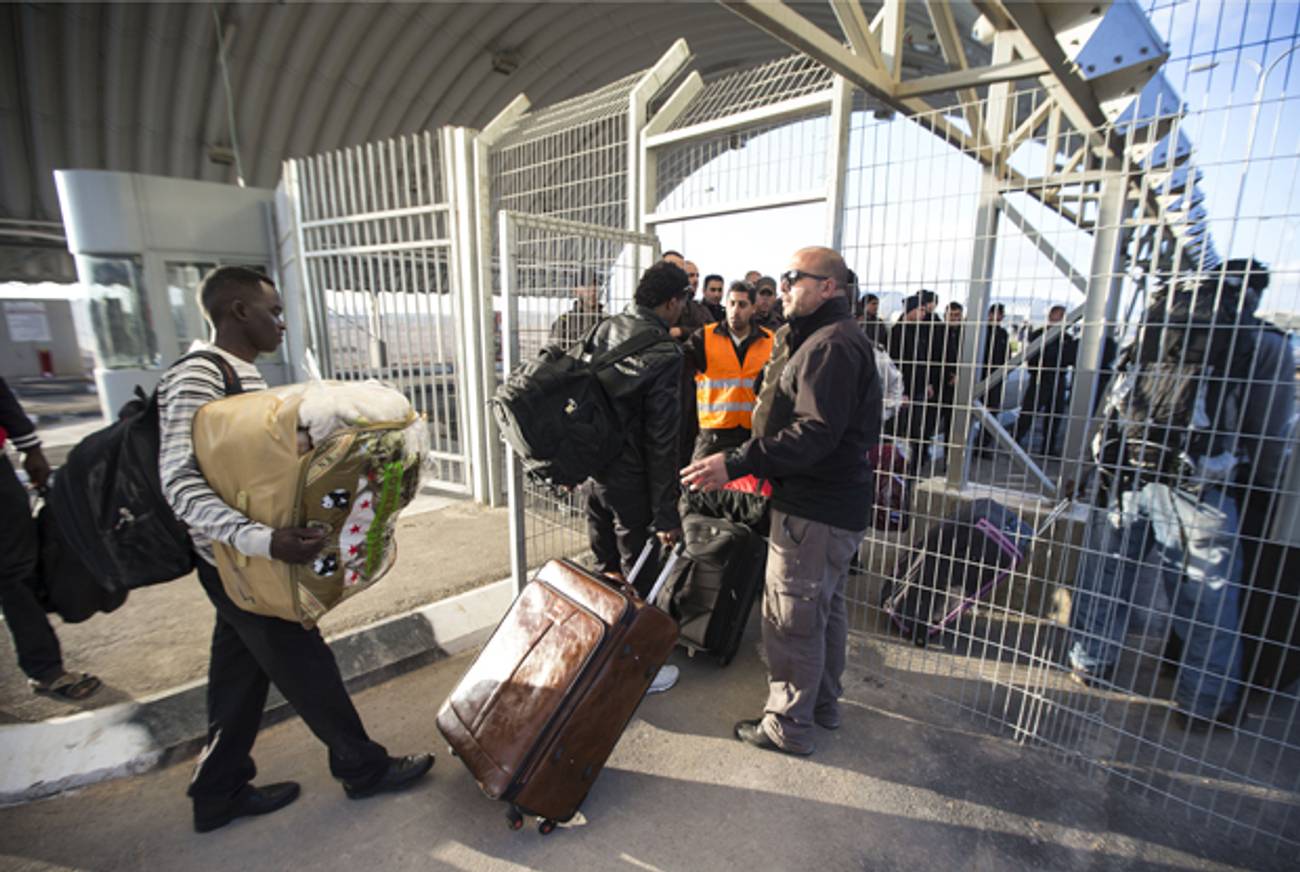Israeli Courts Slam Refugee Detention Process
Judges cancel summonses ordering African migrants to detention facilities




A number of judges in district courts in Israel have delayed or cancelled summonses received by African asylum seekers in Israel ordering them to report to the Holot detention facility, Haaretz reports. The judgements, which come on the heels of widespread protests by African migrants against a new detention policy, criticized various summons processes as fundamentally flawed for their failure to hold hearings before ordering asylum seekers to detention facilities.
According to Haaretz, Israel ordered more than 3,200 asylum seekers to Holot last month, threatening a penalty of imprisonment if they didn’t report there within 30 days. Only 40 percent reported to Holot on time. Judge Chany Slotky of the Be’er Sheva District Court “harshly criticized the government’s conduct” against a 29-year-old Sudanese man who had escaped persecution and torture in Sudan for belonging to a student organization at the University of Khartoum. Slotky ruled that the state had failed to inform him why he was being questioned, in addition to violating his right to legal representation.
The decision, though seemingly a step in the right direction, is being met with skepticism within the African community, explained Oscar Olivier, an asylum seeker from Congo and a community organizer with the African Refugee Development Center. “It will not be the first time judges say one thing and politicians do another,” he said over the phone from Israel, and recalled the Israeli Supreme Court judgment against short-term detention centers which led to the Ministry of Interior creating indefinite detention centers. “When the court ruling is in their interest, they support it, but when it’s not, they turn a blind eye. There is nothing wrong with Israeli law, which is democratic. The problem is that politicians don’t uphold it.”
Tally Amir, professor of law at the College of Law and Business in B’nei Brak, said that while the rulings are positive developments for the individuals involved in the court cases, they won’t likely impact the wider African refugee community, which numbers around 50,000 people. “What’s really sad is that not too many lawyers are able to pursue this,” Amir added, noting that all the legal representation in these cases was pro-bono—a resource many migrants simply don’t have access to.
The larger case of the legality of the Holot detention center is currently before the Israeli Supreme Court, but according to Amir, it’s hard to tell if these rulings at the district level will have an effect. “What I hope we will see is a change in the Ministry of the Interior,” she said, “but I’m not sure because of their record ignoring court cases.”
It was just these sorts of practices that African migrants were protesting in Tel Aviv in early January. Still, Amir doesn’t know if the demonstrations affected the court’s rulings. “The policy is legally outrageous,” she explained. “It is de facto detaining people without due process. Any court will have a problem with this.”
Previous: African Migrant Protest Continues for Fourth Day
Related: Israel, Designed To Absorb Jewish Refugees, Now Struggles With African Migrant Wave
Batya Ungar-Sargon is a freelance writer who lives in New York. Her Twitter feed is @bungarsargon.